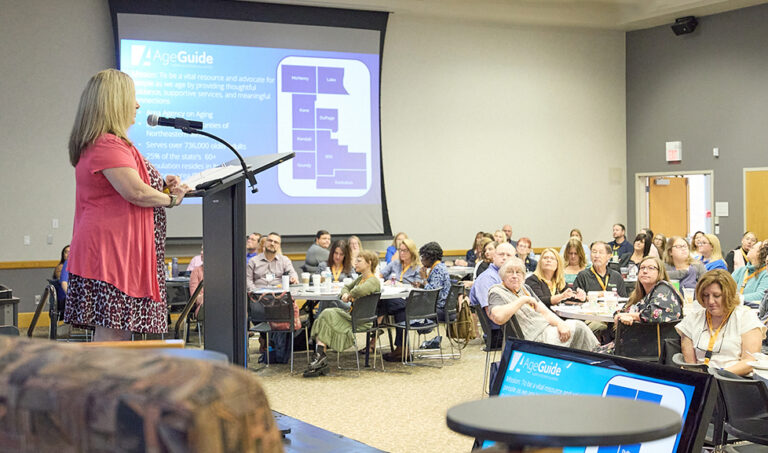
Judith is a Chicago-based freelance writer and public health practitioner. She has been writing since she could hold a pen.
4 questions to help assess this complex legal process
Fact checked by Catherine Gianaro
Have you heard of probate? If so, can you define it?
Probate, based on British common law from the 1500s, is the legal process that takes place after someone dies. It exists to oversee the decedent’s assets and debts and the eventual distribution of assets according to the will, if there is one.
For a will to be valid in Illinois, for example, the testator (the person whose estate is the subject of the will) must be at least 18 years old and of sound mind and memory at the time of will creation. The will must be in writing and signed by the testator and two witnesses who do not stand to benefit from it.
If multiple wills turn up following a person’s death, probate will determine which is the legitimate, enforceable one. Richard Kuhn, managing partner at Kuhn, Heap & Monson, has encountered multiple probate cases where the decedent had multiple wills, “and we needed a court of law to determine which one was valid.”
Does every estate go through probate?
Probate is a public process, required in Illinois for estates that exceed $100,000 that do not have joint tenancies, beneficiaries or are not in trust. Once an estate goes to probate, all estate information, including the contents of the will, enter the public record. Yet, even if probate is not required, all wills must be filed with the court.
Typically, when a probate proceeding starts, all survivors are called to a hearing, including family members who may have stood to inherit by law but whom the decedent has excluded from the will. These legal heirs have a right to attend probate proceedings and could possibly object to the representative’s actions, says Ryann Whalen, a trust and estates attorney with McDonald Hopkins in Chicago.
Probate can draw out what is already a lengthy process. The court appoints an executor if none was named in the will, or an administrator if the deceased died intestate (without a will).
Often there’s an administrative delay in allowing the executor to distribute the estate assets. The estate must publish in the legal notice section of a local newspaper of the case to alert missing or unknown heirs or any creditor of the decedent, followed by a mandatory six-month waiting period to give time for creditors to come forward.
Although the estate may have ongoing expenses, such as taxes or homeowner’s association fees for real estate, if there are delays in opening an estate, payment of these expenses may be delayed or paid by the executor personally to be reimbursed later.
Is there a way to avoid this mess?
An estate plan that includes a revocable living trust may help you avoid this painful process by exempting it from probate altogether. Once you have a revocable trust, the will becomes a simple document known as a pour-over will. Anything in your individual name pours into your trust (by virtue of the will) upon your death and gets distributed according to the trust’s terms. If most of your assets are registered to the trust, the combination of the trust and the will means avoiding probate proceedings, provided all assets (such as a checking account) outside the trust (and with no joint tenancies or beneficiaries) total less than $100,000 in value.
A trust provides more privacy as well. Only those named in your trust documents will be privy to their content.
While there is a cost (attorney fees) to establish a trust, you pay for it on the front end and at the actual end, it facilitates the administration of the estate.
A revocable trust can be of real benefit to your heirs. It avoids probate and its fees, it keeps the estate’s affairs private, and it accelerates the process. “Cook County doesn’t operate smoothly on a good day,” Whalen says. “It can take a month to get an initial court date to open an estate.”
When don’t you need a living trust?
“The laws of probate change in glacial time, but when they change, it’s a big deal,” Kuhn says. One such historic change was the advent of Transfer on Death Instruments (TODI) in Illinois.
This 2012 Statute allowed Illinoisans to transfer ownership of their home by naming beneficiaries for their residential home and avoiding probate for many estates. Ten years later, the statute was updated to allow people to name beneficiaries for any type of real estate they own in Illinois.
According to Kuhn, the ability to name beneficiaries on property is appropriate for middle-aged or older couples with stable children without addictions, mental illness, bankruptcies, or bad marriages, and who all get along. One can use a TODI not only on a house, but also on a farm or a shopping center. This is a good option where there are three or fewer adult beneficiaries who can act together. “The kids can be beneficiaries in the same way they would be beneficiaries of a life insurance policy,” Kuhn says.
Sometimes, though, this might not be the best plan.
“If the kids are not getting along or otherwise really need protection of a trust, or if you have minors or children with special needs, then this would be a case for a living trust [rather than a TODI], when you need one voice and one person in control of the assets,” Kuhn says.
What’s best for you?
It is impossible to say that one way or the other is the best way to go. There are simply too many variables involved, and no two estates are exactly alike. But at the same time, there is no reason to further delay setting up your estate in the most advantageous way for your heirs and loved ones.
“Gather information about your assets and meet with a qualified attorney to determine [your] appropriate estate planning structure,” Whalen says.











